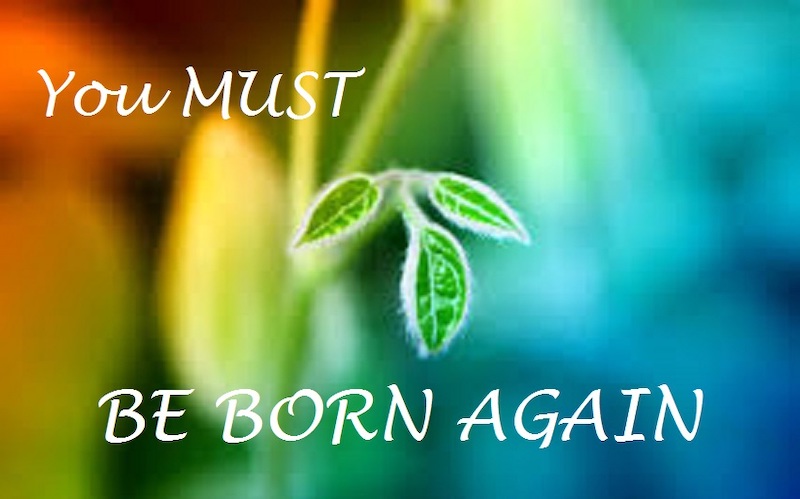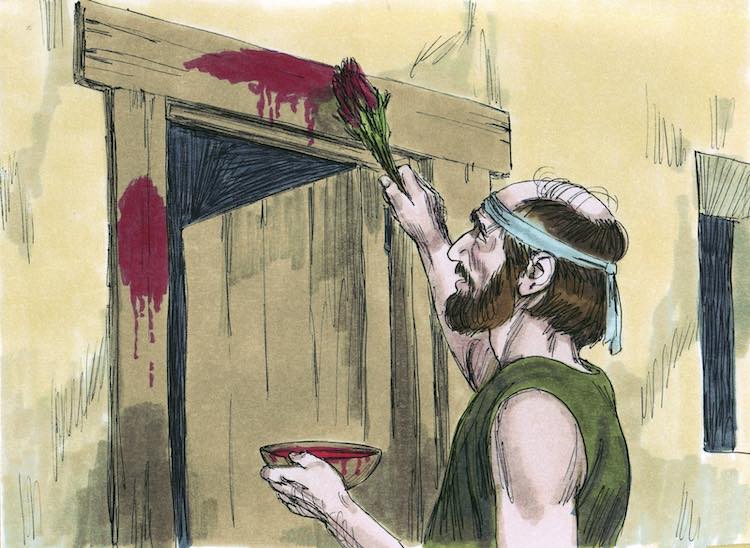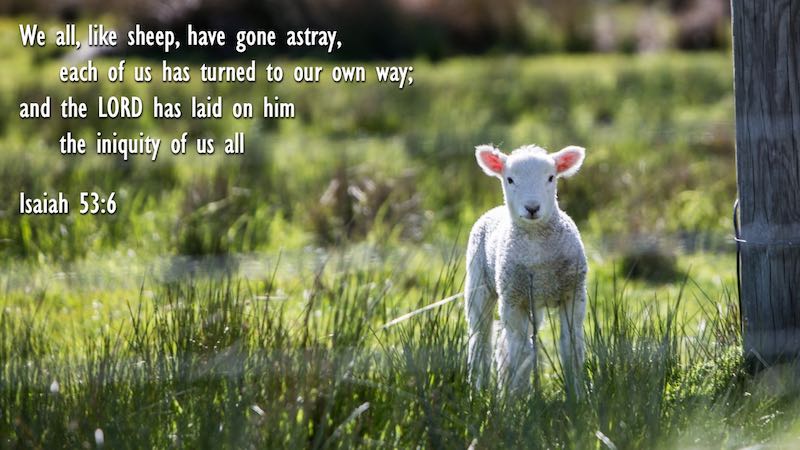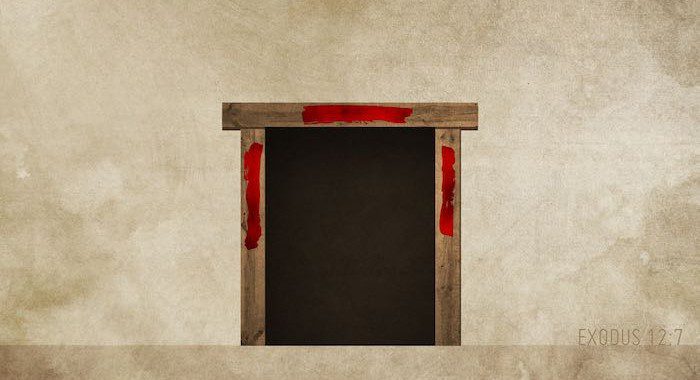One of the most famous dialogues recorded in the New Testament that Yeshua had while He was on earth is the fascinating conversation that took place between Nicodemus and Himself. Nicodemus had come to Yeshua at night, setting the scene of one who was trying to draw closer to Yeshua but in a careful manner and in the cover of darkness so as not to draw attention to what he was doing. After all, Nicodemus was a Pharisee, a religious leader of the people whose party was trying to stop the radical teaching of this young Rabbi, Yeshua.
When Nicodemus first approached Yeshua he praised Him and acknowledged that the authority of His teaching was undeniable: “Rabbi, we know that You have come from God as a teacher; for no one can do these signs that You do unless God is with him.” (John 3:2) Although Nicodemus acknowledged that Yeshua’s power was from God, he was missing the bigger picture and Yeshua addressed this immediately: “Yeshua answered and said to him, ‘Truly, truly, I say to you, unless one is born again he cannot see the kingdom of God.’” (John 3:3). Yeshua made it crystal clear to Nicodemus that it was not enough to be impressed with His teaching, rather, one must be born again spiritually in order to see the kingdom of God.
Faith is Not a Religious Fan Club
The dialogue between Nicodemus and Yeshua continued on as recorded in John chapter three and Yeshua clarified what it means to be born of the Spirit through faith in Him as the Son of God. Yeshua understood the spiritual state of Nicodemus at that time and He knew that Nicodemus needed to choose to totally believe in Him if he wanted to enter the kingdom of God. He needed to be spiritually born again.
Nicodemus was a Jewish religious leader who more than likely meticulously kept the Law of God. He was a member of the Pharisaical sect, a powerful political ruling class among the Jewish people in the days of Yeshua. His credentials were impeccable and he even acknowledged the power and teaching of Yeshua but this wasn’t enough. Faith is not a religious fan club but a choice to believe in God’s provision of salvation for those humble enough to accept it.

Man-made religion and human pride are two of the greatest barriers that prevent human beings from faith in the One True God. The God of the Bible has one universal standard by which all human beings will be judged and redeemed. This standard is clearly taught in this week’s Torah Portion.
The Tenth Plague
In Exodus chapters ten through twelve, we read about the final three plagues that God brought upon the Egyptians until Pharaoh finally agreed to set the Israelites free to leave Egypt and worship the LORD. It was the tenth plague that broke the back of Pharaoh’s stubbornness:
Now the LORD said to Moses, “One more plague I will bring on Pharaoh and on Egypt; after that he will let you go from here. – Ex. 11:1
This tenth plague would finally bring Pharaoh and his people to their knees as they witnessed the judgment of God throughout the land of Egypt.
This tenth plague was different from all the other signs and supernatural catastrophes that the LORD brought upon the Egyptians and the land of Egypt. The tenth plague brought death to the people of Egypt of which every family felt the pain and sorrow:
Now it came about at midnight that the LORD struck all the firstborn in the land of Egypt, from the firstborn of Pharaoh who sat on his throne to the firstborn of the captive who was in the dungeon, and all the firstborn of cattle. Pharaoh arose in the night, he and all his servants and all the Egyptians, and there was a great cry in Egypt, for there was no home where there was not someone dead. – Ex. 12:29-30
Pharaoh and his people could no longer bear the judgment of the LORD and they sent the Israelites out of their land.
The tenth plague was a vital blow for the Egyptians and it was also unique in that it was pervasive throughout all the land of Egypt, including the district where the Israelites lived. The only escape from this tenth plague was through the sacrifice of a lamb and the sign of the blood on the door frame.
Formerly, the Israelites had been sheltered from the devastating judgments of God upon the Egyptians (Ex. 8:22-23. 9:4,6,26. 10:23). The ninth plague, which brought darkness upon the land, is a good example of how this judgment was specific to the Egyptians:
So Moses stretched out his hand toward the sky, and there was thick darkness in all the land of Egypt for three days. They did not see one another, nor did anyone rise from his place for three days, but all the sons of Israel had light in their dwellings. – Exodus 10:22-23
God clearly provided shelter for His people in the land of Goshen during the plague of darkness by giving them light.
Why did God command there to be a sacrifice in order for the Israelites to be saved from the judgment of this tenth plague?

The Uniqueness of the Tenth Plague
In many ways this tenth plague is distinct from the previous nine plagues in which the LORD displayed His judgements, signs, and wonders in the land of Egypt. One clear distinction of this tenth plague is the unique Hebrew word used to speak of this final judgment. When the LORD told Moses, “One more plague I will bring on Pharaoh and on Egypt;…” (Ex. 11:1), the Hebrew word for plague is נגע – Ne’gah which can mean plague, stroke, disease, or mark. This word נגע – Ne’gah is used in this form (as a noun) for the first time in the Bible here in Exodus 11:1.
This tenth plague was a universal plague in the land of Egypt that would bring death of the first born male to both animals and humans without respect to age, race, or class. The LORD reiterated that there would be a distinction between Egypt and Israel regarding this plague as no harm would come to the sons of Israel (Ex. 11:7), however, this was only based on the blood of the lamb as a sign on the homes:
For I will go through the land of Egypt on that night, and will strike down all the firstborn in the land of Egypt, both man and beast; and against all the gods of Egypt I will execute judgments—I am the LORD. The blood shall be a sign for you on the houses where you live; and when I see the blood I will pass over you, and no plague will befall you to destroy you when I strike the land of Egypt. – Ex. 12:12-13
The plague would touch all of those in the land of Egypt, both of man and beast, and it was only the blood of the lamb as a sign on their homes that could prevent the plague from touching any given home.
God’s Universal Judgment and Salvation
None of us can read God’s mind into exactly why He chose to do things in the manner which He has, however, we can know the plans and heart of God through His Word which He has revealed to us. We know that Passover would be a continual reminder to the Jewish people of the redemptive power of God (Ex. 13:3-10) for 1500 years before the Messiah came to this earth. It also seems clear that God was providing a picture of global judgment while providing divine redemption through substitutionary sacrifice in the details of the first Passover.
Just at the tenth plague was universal in nature and brought death to every home in Egypt which did not have the sign of the blood, so to there is a universal judgment upon humankind because of sin:
Indeed, there is not a righteous man on earth who continually does good and who never sins. – Ecclesiastes 7:20
For the wages of sin is death, but the free gift of God is eternal life in the Messiah Yeshua our Lord. – Romans 6:23
And just as there was deliverance and life for all of those in Egypt who believed God and applied the blood to the door of their homes, so there is forgiveness of sins and eternal life to all who believe in the sacrifice of Yeshua today. Sin surely brings death but faith in Yeshua as the Messiah and Lamb of God brings eternal life.

The Final Passover Lamb
Just as God orchestrated the tenth plague together with the provision of the blood of the lamb in the days of Moses, God has also carefully orchestrated the final judgment upon this world together with the provision of the Lamb who provides deliverance. In almost the exact middle of the 1500 years, from the time that Passover was first observed until the coming of the Messiah, God provided a prophecy through the prophet Isaiah about a certain person who was compared to a Lamb who would be killed for the sake of the people’s sin:
He was oppressed and He was afflicted, yet He did not open His mouth; like a lamb that is led to slaughter, and like a sheep that is silent before its shearers, so He did not open His mouth. By oppression and judgment He was taken away; And as for His generation, who considered that He was cut off out of the land of the living for the transgression of my people, to whom the stroke was due? – Isaiah 53:7-8
This prophecy in the book of Isaiah describes for us the wonderful provision of God to take away our transgressions by the death of another. This prophecy was given in approximately 700 BCE, approximately 750 years after the first Passover, and approximately 750 year before the final Passover through the death of the Messiah.
The details of Isaiah 53 point clearly to a person who becomes the sacrificial lamb on behalf of the people, similar to the story of the first Passover when the sacrifice of a lamb provided life for the Israelites. One particular evidence in the Hebrew text that links the Passover of the book of Exodus to the One who would become the sacrificial lamb in Isaiah 53 is the use of the word נגע – Ne’gah in Isaiah 53:8. When it speaks of the One who was “…cut off out of the land of the living for the transgression of my people, to whom the stroke was due?, the word “stroke” is the Hebrew word נגע – Ne’gah, the exact same word which is used in Exodus 11:1 for the word plague, i.e. the tenth plague.
The Death That Brings Life
The universal judgment which is upon this world because of our sin has been taken up by the Lamb of God who was cut off from the land of the living upon His death on the cross. The plague and judgment of sin that is due to each and every human being has been laid upon Yeshua and it is only through believing in Him that we can have His blood applied to our lives and receive forgiveness of sins together with eternal life!
Shabbat Shalom!
If you enjoyed reading this article, share it today with friends! We also invite you to sign up for our weekly Torah Portion commentary on the sidebar to the right.
Help keep our weekly commentaries free and available to all. Click here to donate today:
Torah Portion: Ex. 10:1 – Ex. 13:16
Haftara: Jeremiah 46:13-28
Return to Torah Portion Homepage
Copyright Jewels of Judaism. All rights reserved 2019



This is very good. Only God can bring life from death! It is so miraculous that we cannot conceive of it or believe it! Why is it so hard to believe God? We cannot believe of ourselves, He opens our spiritual eyes to “see” and then we believe. He provides the belief. Amazing! Thank you. I will donate soon.
Thanks Rosa
Thank you again for your healing words! I appreciated every word.
My pleasure. I’m glad it is a blessing.